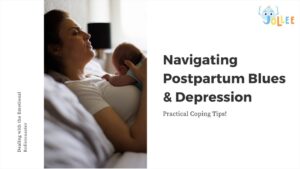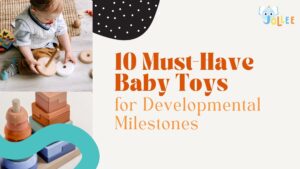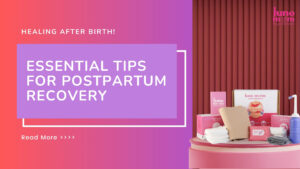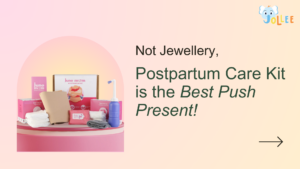Are you planning on starting to feed your baby with formula but worried about the impact it might make on your baby’s health and well-being? Have people told you that Formula Feeding is bad? Worry not! Baby formula isn’t as bad as a breast milk alternative as opposed to what you have been hearing from everyone around. Wondering how? This blog intends to debunk 5 common myths and misconceptions about formula-feeding, to help parents make well-informed feeding decisions.

Myth 1: Formula Feeding will make babies less likely to bond with their parents
This is the most commonly accepted myth which makes many parents reconsider their decision to formula-feed their babies. As parents, it is important to know that developing a bond with your baby depends on various other factors like skin-to-skin contact, facial recognition, regular interaction, etc., and not just breastfeeding.
Moreover, if babies bond mostly over breastfeeding then how are they still able to bond with their father, caregivers, and other family members? Quite a good question, right? So, go formula-feeding if that is what you have been considering. All you need to care about is how your baby responds to formula-feed and if it meets their nutritional needs.
Myth 2: Formula is unhealthy
You must have heard about the health risks associated with formula-feeding your babies. But do you know this held true only for the older versions of the formula? Previously, the nutritional needs of babies were not taken into consideration while creating a baby formula. The current versions of baby formula are created after conducting thorough research on every child’s nutritional needs. Yes, it is true that baby formula can nowhere be compared to breastmilk. However, the current versions of baby formula available in the market are formulated to replicate breastmilk to the best possible extent. And yes, your baby will definitely derive almost all the nutrients from the formula and will remain healthy in their growing years. Also, feeding the right amount of formula won’t make your baby obese.

Myth 3: Formula-fed babies are less smart and slow learners as compared to breastfed babies
As parents, you would agree that all babies are different from each other. Even twin siblings might have different stages of physical and mental development, no matter how similar a diet they are being fed. Your baby’s IQ will depend on various factors irrespective of whether you opt for formula feeding or breastfeeding them. Genetics is one of the prime factors that will decide your baby’s development in terms of both physical and psychological. The environment you create for the baby and how much time and energy you spend interacting with them are the other factors that would determine your baby’s IQ.
Myth 4: Feeding problems can be solved by switching from one formula brand to another
If your formula-fed baby is showing signs of feeding discomfort then switching formula brands will not help. In such cases, there are chances your baby might need to be fed with a different type of baby formula. Swapping from one brand to another can only lead to added discomfort. It is best to visit a paediatrician and find out a formula that would suit your baby’s current nutritional needs.
Myth 5: Formula Feeding can lead to ear infections, allergies, and a prolonged sleep cycle
The baby formula may not be as healthy as breast milk, but it isn’t unhealthy for your babies. Whether you choose to formula feed or not, your baby may or may not develop allergies, ear infections, obesity, and other health issues.
There are only fewer cases where the baby formula has led to certain health issues in babies. However, these signs of infections are also observed in fewer babies who have been breastfed. Infant feeding choices have an insignificant impact on their encountering allergies. Instead, it is genetics, the outer environment, and various other factors that can play a role in contributing to allergies and other health issues in babies.

These are the top five myths and misconceptions revolving around formula feeding. Our only advice to all parents is to conduct deep research and look for expert advice when it comes to feeding babies. Always remember that every child is different and so is every parent’s situation. Know your situation and intention before you give in random judgments and misconceptions.
Introducing the Jollee app, your personal shopping companion for kids’ care products. Now browse through unlimited product options and find only relevant products for your little ones. Click on https://bit.ly/Jollee_BL to install the Jollee app and discover a revolutionary shopping experience.
Download the Jollee app now!






